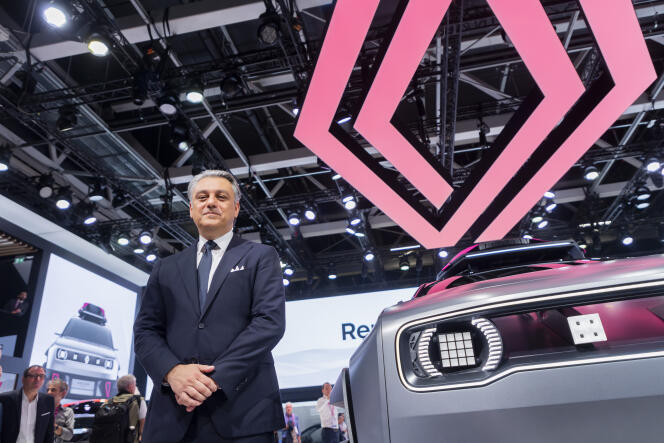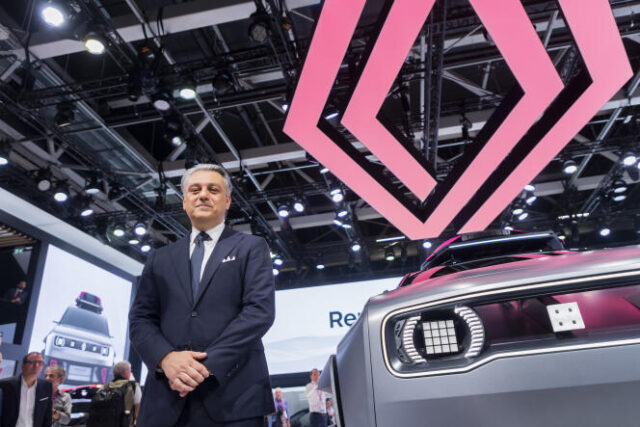
The automotive industry in Europe is a driving force for the continent’s economy: It employs 13 million people, represents 8% of industrial production and a third of Europe’s investments. Yet Renault’s CEO Luca de Meo denounces «the symptoms of a slowdown that will be worrying if nothing is done to halt it.» In a letter addressed to candidates running in the upcoming European elections, de Meo details these warning signs and proposes a 10-step plan to reverse the trend. His letter was at odds with the words of Mercedes chairman Ola Källenius, who a few days ago called on the EU to leave the market alone.
The letter you are sending out today to elected representatives and candidates in the European elections, being held from June 6 to 9, sounds like a warning call. Is the European automotive industry in such a worrying situation?
I don’t see it as a warning call but as a positive contribution. I’m president of the European Automobile Manufacturers’ Association (ACEA) and I’ve been in the automotive industry for 30 years. I’ve worked for Toyota in Brussels, Fiat in Italy, Audi in Germany, Seat in Spain, and of course Renault. I think it’s a subject I know well.
Today, the automotive industry represents 7% of the European economy and €392 billion in revenue for governments (over 20% of the European Union’s tax revenues). Without automotive research (€59 billion), R&D spending in Europe would fall below 2% of GDP (compared with 3.4% in the United States).
Yet the center of the global car market has shifted to Asia. There, 52% of new passenger cars are sold and it’s even higher for electric or electrified cars. China has a 4% market share in Europe; 35% of electric cars exported worldwide are Chinese.
Let me add that car manufacturing, which has changed little over the past 140 years, needs to integrate four new chains of value: electrification, software, electric car recharging and the circular economy. All this at a time when technologies are evolving rapidly and raw material prices are fluctuating wildly.
Despite this situation, the chairman of Mercedes said he was opposed to the introduction of tariffs or protective measures. He advocates leaving things to the market. Where do you stand?
This is indeed a very hot topic at the moment. My position, and that of ACEA, is clear: We don’t want protectionism, but we do want fair competition. But this is not fair competition. A «made in China» C-segment car [the equivalent of a Renault Austral, Peugeot 3008 or Volkswagen Tiguan] enjoys a cost advantage of €6,000 to €7,000 over an equivalent European model. Around 25% of the total price.
You have 73.74% of this article left to read. The rest is for subscribers only.









